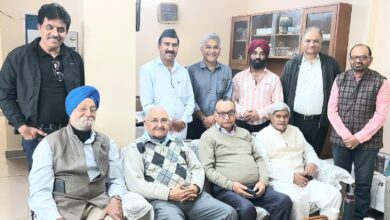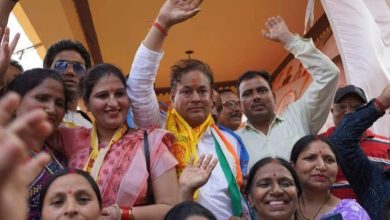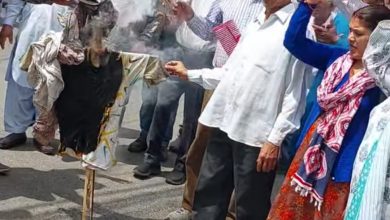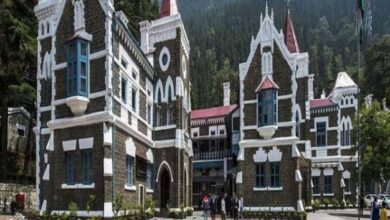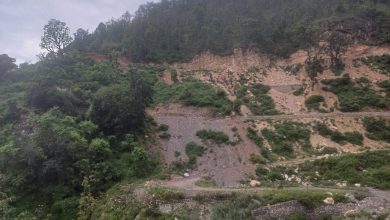Sonam Wangchuk says one government can’t be good and another bad for environmental degradation. We should oppose all governments if our environment or ecology of Himalayas is degraded / harmed. Opposition can’t be selective
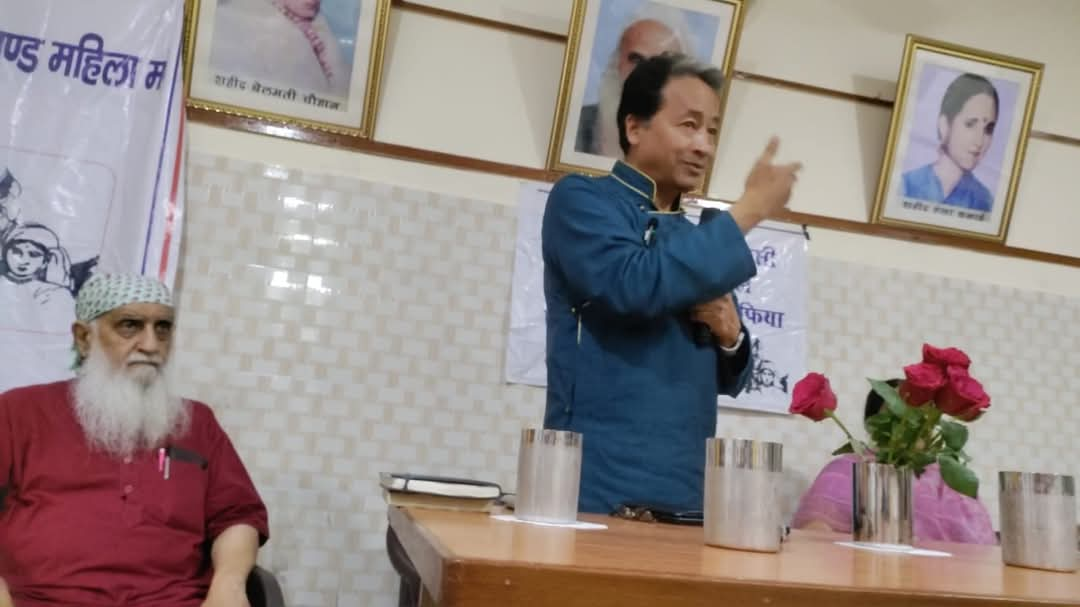
Gunanand Jakhmola, / Sunil Negi, Sr.journalists
An eminent environmentalist of repute fighting for bringing Ladakh under the sixth schedule of the Constitution Sonam Wangchuk is categorically of a very unambiguous opinion that governments need to be deplored whether they are from this party or that party if they do any harm to our ecology or environment.


We should not spare any government if they play with the ecology and environment of our Himalayas saying that this government is good and that government was bad as it has usually been seen that whenever the governments of any party are in power they definitely deteriorate our environment.
In Uttarakhand BJP is ruling we criticize them but the in Telangana another party government is functioning where there has been massive deforestation, environmental degradation how can we say that BJP is bad and that government is good.
We have to oppose them all irrespective of their affiliation or ideology said Sonam Wangchuk while addressing a seminar of environment on the occasion of the fourth anniversary of Padmashree and Padma Vibhushan recipient internationally famous environmentalist Subderlal Bahuguna at Shaheed Sthal, Kachehari in Dehradun today.
Sunderlal Bahuguna raised the concerns of the Himalayas strongly. He was also against the dam and Sonam has also been fighting for a long time demanding inclusion of Ladakh in the Sixth Schedule on the same concerns. His and Bahuguna’s life struggle is for the common people.
Sonam Wangchuk was expressing the pain of Ladakh. After the removal of 370, there should have been development there. The problems there should have been solved. The living standards of the people there should have improved. The people there should have had the right to take decisions regarding the water, forest and land there.
80 percent of tribal people should get their rights. I wish the rulers of the country would think about this pain, this yearning, the desire for development and about making the life of the common people easier. But no, the ears of the government are deaf.
While listening to Sonam, I realised that this story is also of Uttarakhand. I am an eyewitness of the Uttarakhand state movement. The most active people in this movement are the most neglected today. They were protesting on the streets in 1994, and even today they create a ruckus on the streets.
Yes, Vinod Chamoli and one or two more can be exceptions. In the state of Uttarakhand, which was born out of concern for the Himalayas and the question of identity, even today both mountains and hills are of secondary importance. Priorities have been limited to three plain districts. And mountains are now only meant for summer trips.
Ladakh and Uttarakhand, both are Himalayan regions and are known for their natural beauty, cultural richness and strategic importance. Pangong Lake in Ladakh and Nanda Devi in Uttarakhand attract tourists.
Ladakh has Buddhist monasteries like Hemis and Thikse, while Uttarakhand has Char Dham. There are unique places like Chadar Trek in Ladakh and Roopkund Trek in Uttarakhand. Ladakh, on the border of China and Pakistan, and Uttarakhand, on the border of Nepal and China, both are strategically important.
The high altitude, cold and rugged terrain in Uttarakhand and Ladakh make infrastructure development and connectivity challenging. Roads are closed in winter, such as the Zojila pass in Ladakh and the Gangotri pass in Uttarakhand.
Floods in Uttarakhand and cloudbursts in Ladakh increase the risk. Melting of glaciers in Ladakh and deforestation in Uttarakhand are affecting the ecology. Increasing tourism is increasing garbage and pressure on resources, particularly in the form of water scarcity in Ladakh and pollution of rivers in Uttarakhand. Industrial development is limited in both regions, and local people depend mainly on tourism, agriculture and government jobs.
The only difference is that corruption is limited in Ladakh, although its budget of about Rs. 6000 crores is under the control of the LG. Whereas in Uttarakhand, politicians, bureaucrats, contractors and middlemen are together enjoying the sweetness of corruption.
Another important thing, there are thousands of people from Ladakh with Wangchuk, but Uttarakhand is leaderless. Here no one is ready to accept anyone as a leader.
Eminent environmentalist and renowned earth scientists Dr. Ravi Chopra presided and spoke on the occassion.
It may be recalled that primarily an engineer by profession Sonam Wangchuk is an environmental activist also known as an innovator and education reformer, globally.
Also a founder-director of the Students’ Educational and Cultural Movement of Ladakh (SECMOL), which was established in 1988 Sunam Wangchuk is also also known for its unique initiative “Ice Stupa” (artificial glacier), which stores water in the form of ice cones in winter and provides water to farmers in summer, a unique innovation lauded by one and all. He is credited for launching Operation New Hope in 1994, an effort to improve government schools through collaboration between the government, village communities, and civil society encouraging participatery movement.
His story inspired the character of Phunsuk Wangdu in the Bollywood film “3 Idiots”. In recent years, he has been agitating for autonomy for Ladakh under the Sixth Schedule of the Constitution and environmental protection.

